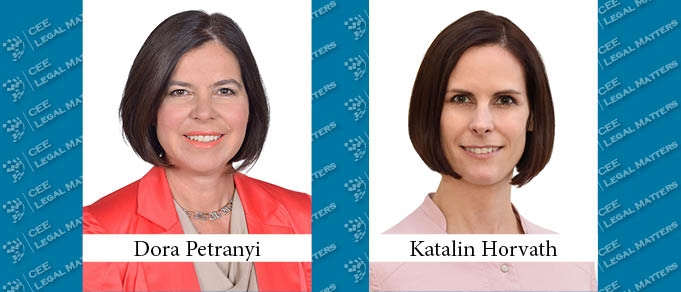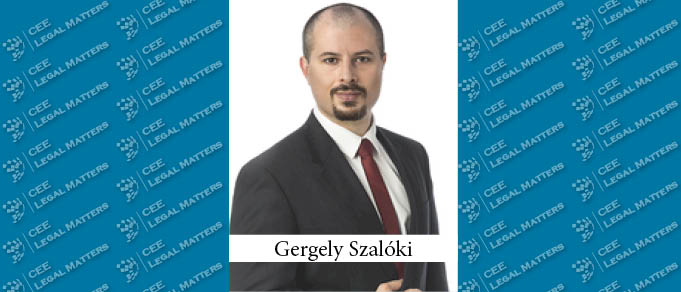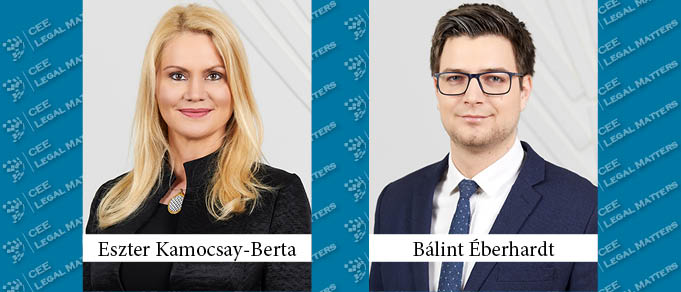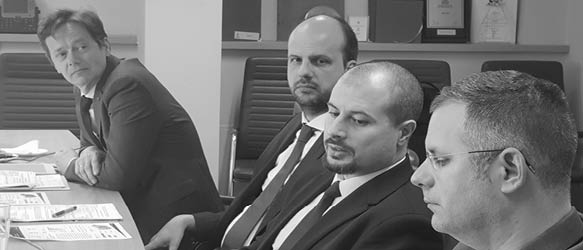In February, the EU Commission issued its new White Book on Artificial Intelligence – a European Approach to Excellence and Trust. The White Book is the prelude to a new EU regulatory framework for AI that aims to minimize the risks of AI and seize the opportunities it offers.
Marketing Law Firm Marketing: Childhood Dreams
We decided to lighten the mood this time around by asking our Law Firm Marketing experts from across the region a non-law-firm related question: “What did you most want to be when you were little?”
A Hungarian Life In Focus
A CEELM Profile of Daniel Szabo, Central Europe Team Lead at Hewlett Packard Enterprise in Budapest.
Raising The Bar: Hungary’s New CLE Requirements for Lawyers
On January 1st, 2020, the Hungarian government adopted new legislation making continuing professional education compulsory for lawyers, post-qualification, along the lines of post-certification training and education that tax advisors and accountants had been forced to obtain for many years.
Deal Expanded: Extreme Digital/eMAG Merger
Allen & Overy Counsel Balazs Sahin-Toth Talks About the Deal of the Year in Hungary
Hungary: Cyber Incidents in the Healthcare Sector on the Increase
In recent years, and for multiple reasons, cyber-attacks against healthcare providers have increased significantly on a global level. First, IT platforms and devices used by healthcare providers have a technical diversity, while sources devoted to an integrated cybersecurity system for these IT platforms are often limited, making the IT systems vulnerable and ideal targets of potential cyber-attacks. Second, health data qualifies as “highly sensitive data,” which is considered very valuable on the black market compared to other types of personal data.
Upcoming Legal Changes Affecting the Real Estate Sector
Market Spotlight - Hungary
The Changing Banking Sector in Hungary and its Legal Challenges
The Hungarian banking sector enjoyed a banner year in 2019, but still faces challenges. Legislative changes are creating more aggressive competition between banks, which in turn are cutting fees and demanding flexible financing structures in order to survive. Although some banks are unwilling to take part in these practices, one thing is certain: All banks must adapt to the new regulatory environment. I’ve outlined some of the major challenges that Hungarian banks face in the near future.
Recent Changes in the Stock Exchange Regulation
On December 27, 2019, several amendments made to the Hungarian capital markets act by the Hungarian Parliament to adhere to the relevant rules of the European Union be-came effective, also making it easier for Hungarian companies to issue bonds under the Bond Funding for Growth Scheme (BGS) by introducing more lenient information and publication rules for issuances.
Hungary’s Private Foundation Act
In the few months since Hungary’s Private Foundation Act came into force on March 29, 2019, it has already significantly grown in terms of financial importance.
Inside Out: Pannonia Bio Bond Issuance
On September 20 2019, CEE Legal Matters reported that BLS had advised Pannonia Bio Zrt. – a company operating a biorefinery in Tolna County, Hungary, that is the largest ethanol plant in Europe – and that CMS Hungary had advised OTP Bank Plc. on Pannonia Bio’s issuance of the first Hungarian forint bond in line with the Central Bank of Hungary’s Bond Funding for Growth Scheme.
The Banks of the Danube: An Interview with Gergely Szaloki of Schoenherr Budapest
The Banking sector in Hungary has been doing well in recent years. Schoenherr Budapest Local Partner Gergely Szaloki walks us through that progress.
Tapping Capital: Sources of and Problems with Financing in the Hungarian Market
The Hungarian financial market finished 2019 in a strong position. Intrigued by what many have described as a “special” year, CEE Legal Matters sat down with several of the nation’s leading Banking/Finance lawyers at Lakatos, Koves & Partners’ offices in Budapest to learn more.
Guest Editorial: Triple Bottomline Impact – Time to Change
Sounds frightening, huh? When I first encountered this expression a couple of years ago, I thought it was one of those buzzwords that had been created by accountants or other financial wizards to tackle invasively curious tax administration people. “Bottomline” also sounded familiar: that is the very last figure in your financial statements; the one that interests you the most.
The Corner Office: 2020 Initiatives
In The Corner Office we ask Managing Partners across Central and Eastern Europe about their unique roles and responsibilities. The question this time around: What major initiative or new plan does your office (or firm) plan – if any – for 2020?
The Activity of the Arbitrator Under Hungary’s New Arbitration Act
The extent to which a judge may be active in obtaining the facts necessary to adjudicate a dispute or in finding the legal norms on which a decision is based is a fundamental question of any legal proceeding. Can judges invite the parties to present facts which they consider essential? Or can a judge tell the parties that in his or her view the dispute can be settled on the basis of legal provisions which they have not invoked? These fundamental questions apply to arbitrators as well. In this respect, does arbitration give arbitrators a smaller or greater role than that which judges have? Perhaps surprisingly, arbitrators may in fact have stronger powers in this respect than state-authorized judges.
Capital Markets in Hungary
Contributed by Kinstellar.
CEELM Covid-19 Comparative Legal Guide: Contracts in Hungary
Contributed by Nagy es Trocsanyi



















